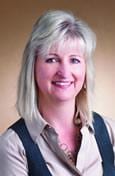
Credit: env.gov.bc.ca
One third of British Columbia school districts now have stand-alone anti-homophobia policies after Quesnel implemented its Sexual Orientation and Gender Identity policy on July 11 with unanimous board approval.
“The next step for us is to focus on the implementation,” says Quesnel superintendent Sue-Ellen Miller. “We have a committee with many stakeholders to develop the education components and the anti-homophobia workshops and other things. This is just the beginning step to break down the barriers. We’re excited about the things to come.”
The new policy recognizes homophobic bullying as a “routine form of bullying that takes place in all schools.”
Citing research done by the McCreary Centre Society, Egale and the BC Centre for Safe Schools, the policy also recognizes that “LGBTQ students and any student who does not conform to rigid gender role stereotypes can frequently be the target of homophobic or transphobic bullying.”
“There are sections of other policies that address discriminating and bullying, and we needed one to specifically address sexual orientation and gender identity,” says board chair Caroline Mitchell. “We know that with kids it’s really easy to tease when they think something’s different, so the teachers and a principal had been working this, and we felt it important everyone, both staff and students, to feel safe in our schools.”
Quesnel District Teachers’ Association president Teri Mooring says she and her colleagues looked to neighbouring Prince George school district for guidance on how to proceed with their own policy.
“They had their GSA going for a while now, and we heard nothing but good stuff about it,” she says. “The teachers have been extremely active and supportive, so it’s interesting that their board is lagging behind while ours has always been supportive with these types of issues.”
In March Prince George school trustees rejected proposals for a stand-alone anti-homophobia policy, opting instead to improve existing policies.
Mooring notes that there are currently no GSAs in Quesnel but hopes the new policy will encourage a core group of supporters to start one in the near future. “It used to be that kids would wait until they graduated before coming out,” she says. “There are kids who are out now, but it is certainly not representative of kids who could be out now, but we’re working on it. There’ve been issues here with gay students who have returned as young adults, and there have been issues — comments made downtown and that kind of thing.”
She says it’s really important for small-town boards and teachers’ unions to take a public stand in support of LGBT equality.
“We’re a small northern community, and there hasn’t been anything here to promote a broader-base community conversation about these issues,” she adds.
Bob Simpson, the independent MLA for Cariboo North, which includes Quesnel, thinks the provincial government should implement an anti-homophobia policy, rather than individual school boards who may be grappling with limited resources.
“Why should school districts have to reinvent the wheel and cobble that together and resource that? If you go to a provincial initiative, it’s just easier for the district and teachers’ association to implement the program,” he says. “In this case it makes absolute sense from standardizing practice in British Columbia. We have a standard anti-bullying approach fully supported by the provincial government with resources provided by the provincial government. It makes sense to me in this case around provincewide resourcing should fall in this category. It’s long past due, it’s an area that we do need to work on, and it’s an area that needs to be fully resourced by the provincial government.”

 Why you can trust Xtra
Why you can trust Xtra


